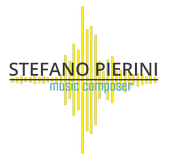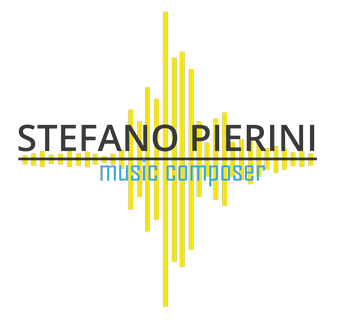
RIZOMA I for soprano, ensemble and electronics
RIZOMA I is part of a cycle of four compositions which bears the title RIZOMATA (‘roots’) each connected to one of the natural elements: fire, air, water and earth.
The general idea is inspired to the four founding principles of the ancient greek philosophy (from here the title) and every one is set to a text of a different author who deals with the subject from a different perspective. The common feature though is that in every of them the considered element appears to be missing or unreachable and acquires its meaning through that lack, creating a distance that becomes a presence and a ‘identity’ itself.
It is de facto a negative ‘cosmogony’.
The text of RIZOMA I is ‘Le point noir’ by Gérard de Nerval in which the author describes a common physical phenomenon that everyone of us has probably witnessed: after staring directly at the sun a black spot remains impressed on the retina and, for a certain amount of time, overlaps itself on everything we look at hiding the shapes and making us aware that we are not able to watch the star directly, it is painful and its strength is too powerful for our possibilities, only the eagle can do that, says the poet.
In this metaphor of a unsustainable relationship is possible to identify that presence and distance which becomes a existential dimension.
Croit voir devant ses yeux voler obstinément
Sur la gloire un instant j’osai fixer les yeux:
Un point noir est resté dans mon regard avide.
Depuis, mêlée à tout comme un signe de deuil,
Partout, sur quelque endroit que s’arrête mon œil,
Je la vois se poser aussi, la tache noire!
Quoi, toujours? Entre moi sans cesse et le bonheur!
Oh! c’est que l’aigle seul – malheur à nous, malheur!
Contemple impunément le Soleil et la Gloire.
(Gérard de Nerval)
————
THE BLACK POINT
Whoever has looked a long time at the sun,
Beholds in the welkin, where spot there is none,
A disk livid and strange, persistently float:
Thus young and audacious, mine eyes dared to gaze
On Glory one instant, and blind from the blaze,
Are destined the black spot for ever to note.
Since then, on all things, like a portent or sign,
Like the seal on Cain’s brow, in dark and in shine,
I see the mark spectral,—a black oriflamme:
A bar to my happiness ill I may brook!
Ah woe! ‘Tis the eagle alone that may look
On the Sun and on Glory undazzled and calm.
- Electronics
- Ensemble
- Soprano



